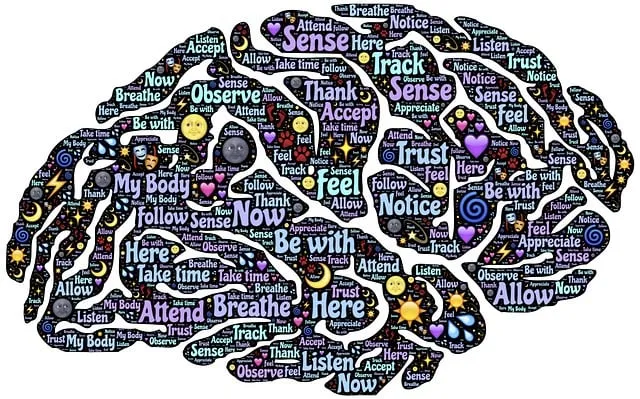The Wheat Ridge Kaiser Permanente Mental Health Access Center prioritizes cultural sensitivity as a cornerstone of improved care for diverse communities. They achieve this through comprehensive training for practitioners, culturally relevant education, and adaptive communication strategies that respect individual backgrounds and values. This patient-centered approach enhances trust, open dialogue, and equitable access to mental health services, addressing provider burnout with stress reduction initiatives. By integrating evidence-based, culture-tailored programs like Social Skills Training and Burnout Prevention, the center ensures inclusive care aligned with holistic wellness for all individuals.
Cultural sensitivity is a cornerstone of effective mental healthcare, ensuring equitable treatment for all. This article explores this vital concept through the lens of the Wheat Ridge Kaiser Permanente Mental Health Access Center—a leading model of culturally competent care. We’ll delve into their approach and discover practical strategies to navigate cultural differences in therapy, fostering inclusive environments that resonate with diverse patients. By understanding these methods, mental health professionals can provide more personalized and accessible services.
- Understanding Cultural Sensitivity in Mental Healthcare
- The Wheat Ridge Kaiser Permanente Mental Health Access Center Approach
- Strategies for Culturally Competent Practice
Understanding Cultural Sensitivity in Mental Healthcare

Cultural sensitivity in mental healthcare is a crucial aspect that enhances access to quality care for diverse communities, including those served by centers like the Wheat Ridge Kaiser Permanente Mental Health Access Center. It involves recognizing and appreciating the unique cultural backgrounds, beliefs, and values of individuals seeking mental health services. This understanding allows professionals to provide tailored support that respects and embraces each patient’s identity, ensuring effective communication and treatment outcomes.
Effective cultural sensitivity in mental healthcare goes beyond simply offering bilingual resources or culturally relevant brochures. It entails training mental health practitioners to employ adaptive Communication Strategies, integrate Mental Health Education Programs Design suited to diverse communities, and facilitate Emotional Healing Processes that resonate with various cultural norms and practices. Such an approach fosters trust, encourages open dialogue, and promotes equitable access to mental healthcare services for all.
The Wheat Ridge Kaiser Permanente Mental Health Access Center Approach

The Wheat Ridge Kaiser Permanente Mental Health Access Center has pioneered an innovative approach to addressing cultural sensitivity in mental healthcare. By prioritizing patient-centered care, the center ensures that individuals from diverse backgrounds receive treatment tailored to their unique needs and beliefs. This approach involves actively incorporating cultural competency training for healthcare providers, fostering a deeper understanding of various therapeutic modalities within different cultures.
The center’s commitment extends to burnout prevention strategies for healthcare providers, recognizing the impact of stress reduction methods on maintaining emotional intelligence. They promote healthy work-life balance and provide access to resources that enhance self-care practices among mental health professionals. This holistic approach not only benefits patients but also contributes to a more inclusive and effective mental healthcare system, reflecting the evolving needs of a diverse society.
Strategies for Culturally Competent Practice

Cultural sensitivity is a cornerstone for providing effective mental healthcare, especially at centers like Wheat Ridge Kaiser Permanente’s mental health access center. Building culturally competent practice requires a multifaceted approach. One key strategy involves actively listening and communicating openly with clients from diverse backgrounds, acknowledging their unique perspectives, values, and beliefs related to mental illness. This fosters trust and ensures that treatment aligns with cultural norms.
Additionally, incorporating Emotional Well-being Promotion Techniques tailored to specific cultures can be beneficial. Providing Social Skills Training and Burnout Prevention programs sensitive to these nuances helps meet the individual needs of each client. By embracing diversity and integrating evidence-based practices adaptable to various cultural contexts, mental health professionals at centers like Wheat Ridge Kaiser Permanente can deliver more inclusive and impactful care.
Cultural sensitivity is an essential aspect of providing effective mental healthcare, and the Wheat Ridge Kaiser Permanente Mental Health Access Center serves as a compelling example. By adopting a culturally competent approach, they ensure that diverse patient populations receive tailored care. This article has explored strategies to navigate cultural differences, highlighting the importance of understanding various cultural contexts in mental health practice. Embracing these methods can lead to improved patient outcomes and foster more inclusive healthcare environments, mirroring the successful model implemented by the Wheat Ridge Kaiser Permanente mental health access center.


